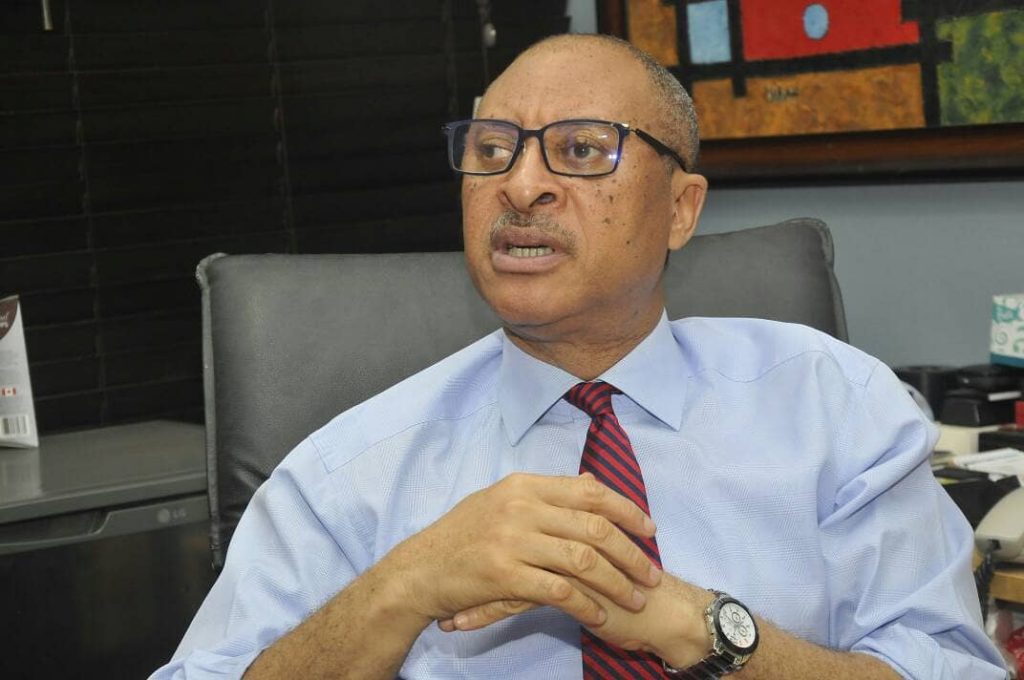
Prof. Pat Utomi, founder Utomapp Ltd., on Tuesday called for a change of approach that would ensure Nigeria get smart regulators and good policies that would aid the maritime industry.
Utomi made the call at the maritime roundtable workshop in Lagos, organised by the Utomapp Ltd. and the NLNG Ship Management Ltd. (NSML).
The workshop had the theme, ”Emerging Technology and Regulations in the Global Maritime Industry of the Future and the Impacts on the Nigerian Maritime Sector.
According to Utomi, there should be a focus on understanding the potential of emerging technologies and regulatory frameworks on the Nigerian maritime sector.
He spoke on the need for smart regulatory bodies and policies to possess advanced knowledge and expertise in emerging technologies that could transform the global maritime industry further.
“There is so much that the maritime can offer the country, but which we have not tried to explore. We need to change our approach, get smart regulators and good policies and then, we will make a lot of progress.
He noted that the creation of the blue economy ministry could be an eye opener to the potential and possibilities in the sector.
“But the truth is that for a long time, Nigeria has not, in terms of policy making, fully understand the advantage of long coast line and the possibilities flowing from there.
“I have personally struggled through the years to get people to understand this. We do this breakfast meeting, bring people together, sector leaders to discuss on what problems that are in the sector, energise it and make it progress.
“But the regulatory side has lagged behind and they have not managed to stimulate the possibilities. Part of the reason is that people see this as a cash cow place.
“They will send their boy to go and run and make money. Instead of finding the talent that fits in the area. When you have an area that can transform your economy, you don’t send boys to make money there,” he said.
He urged the government to ensure that people who are capable of opening and transforming the industry should be deployed to the sector.
He noted that it was unfortunate that regulators very often do not understand what they were doing because there was challenge of purpose.
“The maritime sector is a place where we can solve the problems of this country because the possibilities are very tremendous,” he said.
Utomi listed some of the new technologies that would affect the maritime industry as: Blockchain technology for corruption reduction, big data analytics to help optimise sail routes, innovate paths to reducing carbon footprint, internet of things and others.
Also commenting, Dr Abdulkadir Ahmed, Chief Executive Officer, NSML, said Nigeria needed to imbibe a forward-thinking culture that would enable it embrace emerging regulations and technological advancements.
According to him, the culture must be in a worthy manner that propel the Nigerian maritime industry towards sustainable growth and prosperity.
He noted that stakeholders had significant and important roles to play in ensuring that Nigeria was not left behind in the new global maritime economy.
He said that further steps should be taken by developing clear actions and guidelines for stakeholders, especially regulators that would place the country in a pathway to success, safe, reliable and globally competitive maritime industry.
“The theme was carefully curated to review two topical issues that stakeholders in the global maritime industry are devoting serious attention and resources to: technology advancement and regulations.
“These two issues are fully anchored in the treble objectives of ensuring a safe, reliable and sustainable industry.
“We believe that it is vitally important we start analysing these issues within the context of applicability to the Nigerian maritime industry, as they are bound to change the operations and dynamics of the sector,” he said.
In a panel session, Capt. Ladi Olubowale, Director, Seamate Group, said that in implementing some of the regulations from the International Maritime Organisation (IMO), there was need to ensure the technology available meet up with the regulation.
“We need to ensure that the regulation is localised and fit into what the country has,” he said.
Ms Iroghama Ogbeifun, Managing Director Starz Investment Company Ltd, speaking on decarbonisation, said the regulations were over arching, no clear strategy, roadmap for indigenous shipowners to measure their emmission.
“We know what the issues are, profer solutions but unfortunately, we are speaking o ourselves here because the people that are supposed to act are not here.
“ There is need to have the Nigerian Maritime Administration and Safety Agency (NIMASA), the Nigerian Ports Authority (NPA) and others here to discuss, but they are not here,” she said.















